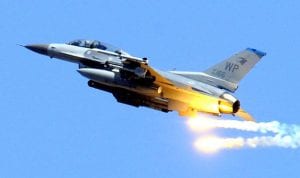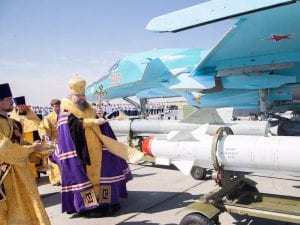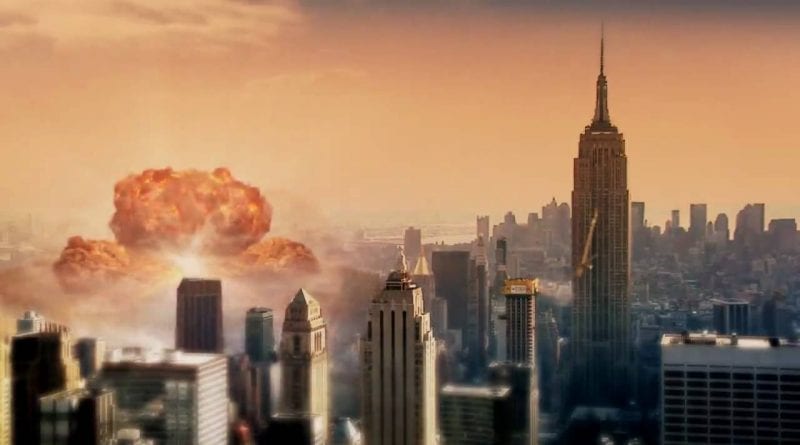Memo to America: You should be terrified of World War III – “Open conflict between Russia and the United States is heating up”
Follow Mystic Post on Facebook
Ryan Cooper
NATIONAL CORRESPONDENT
Open conflict between Russia and the United States is heating up in Syria. After American forces shot down a Syrian fighter jet, Russia suspended use of an Obama-era communications line used to prevent collisions and conflict, and threatened to shoot down American planes.
America’s Syria policy was and continues to be absolutely moronic. But this alarming development is also a reminder that there is simply no alternative to diplomatic engagement with Russia, the world’s only other nuclear superpower. That’s something both the American military, and liberals fired up over Trump’s Russia scandal, would do well to remember.
 In the discussion about climate change risk management, I have argued that somewhat unlikely disaster scenarios deserve serious consideration, because it’s worth a substantial cost to avoid even a small chance of a huge harm. (It’s basic insurance reasoning.) The same is true of nuclear war.
In the discussion about climate change risk management, I have argued that somewhat unlikely disaster scenarios deserve serious consideration, because it’s worth a substantial cost to avoid even a small chance of a huge harm. (It’s basic insurance reasoning.) The same is true of nuclear war.
An all-out nuclear exchange between the United States and Russia is one of the few things that could threaten human extinction. Hundreds of millions, perhaps billions, would be killed in the immediate attack, blowing the world economic system apart, and beginning what would probably be several years of nuclear winter, devastating agriculture. People might survive in remote locations — perhaps Australia and New Zealand — but it’s not at all guaranteed in such an extreme scenario. It would be the worst disaster in history, by several orders of magnitude.
Such a possibility gets less attention than climate change these days, I think, because we don’t have to do anything to avoid it — merely preserve the mutually assured destruction framework that carried us through the Cold War, despite a few close calls. Ultimately a nuclear conflict would be the worst imaginable strategic outcome for both nations, and so both nations ought to be able to avoid it.
But, as we saw during the Cuban Missile Crisis, sometimes an escalating, high-stakes conflict can bring the worst-case scenario closer and closer. As Robert McNamara said regarding his experience as secretary of defense during the crisis:
 At the end, we lucked out. It was luck that prevented nuclear war. We came that close to nuclear war at the end. Rational individuals — Kennedy was rational, Castro was rational, Khrushchev was rational — came that close to total destruction of their societies. And that danger exists today.
At the end, we lucked out. It was luck that prevented nuclear war. We came that close to nuclear war at the end. Rational individuals — Kennedy was rational, Castro was rational, Khrushchev was rational — came that close to total destruction of their societies. And that danger exists today.
The major lesson of the Cuban Missile Crisis is this: The indefinite combination of human fallibility and nuclear weapons will destroy nations. [The Fog of War]





